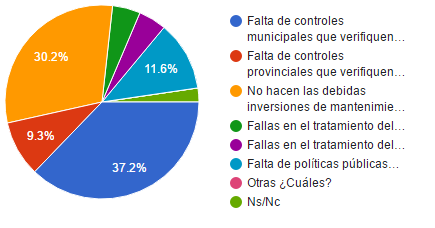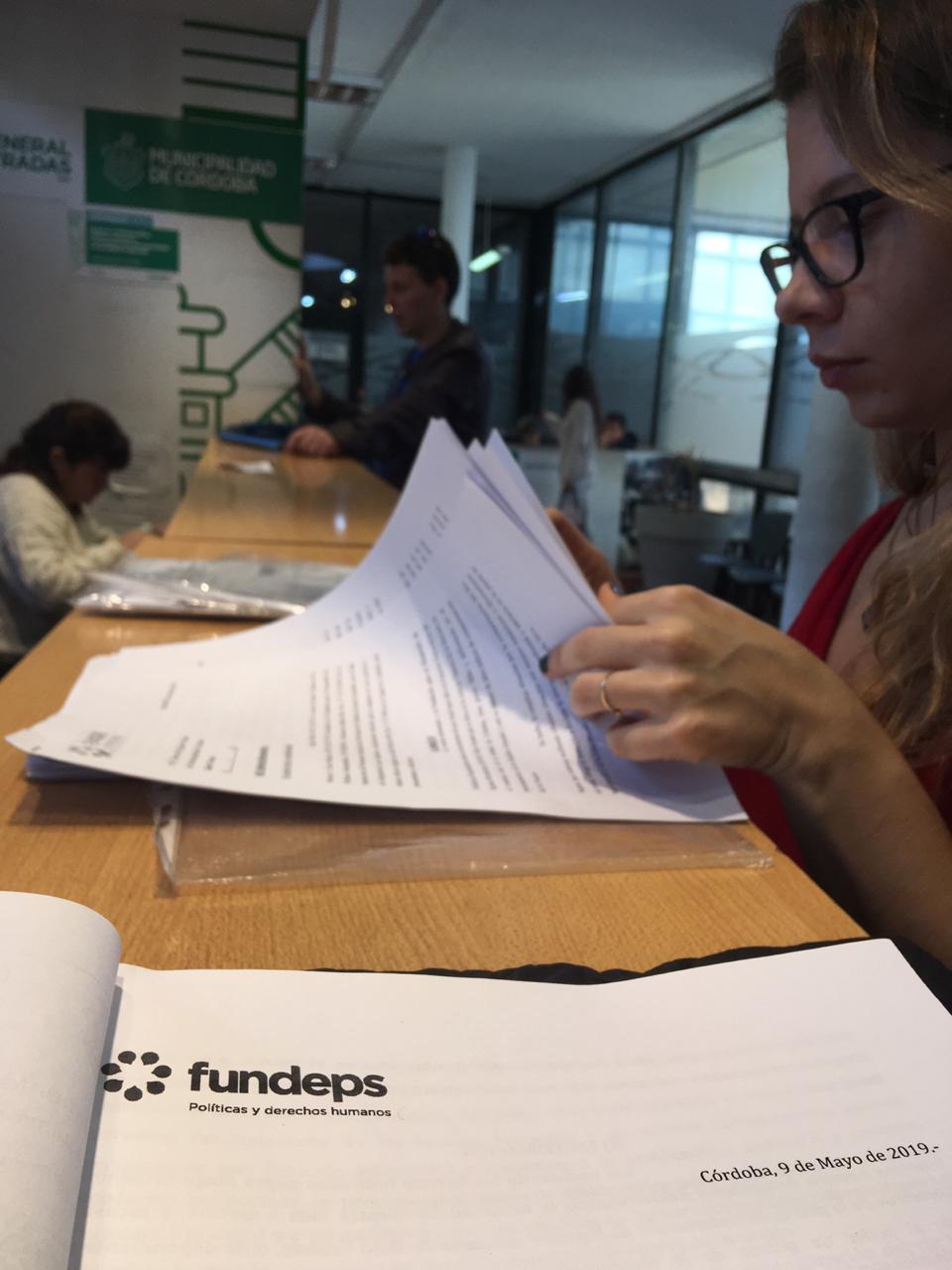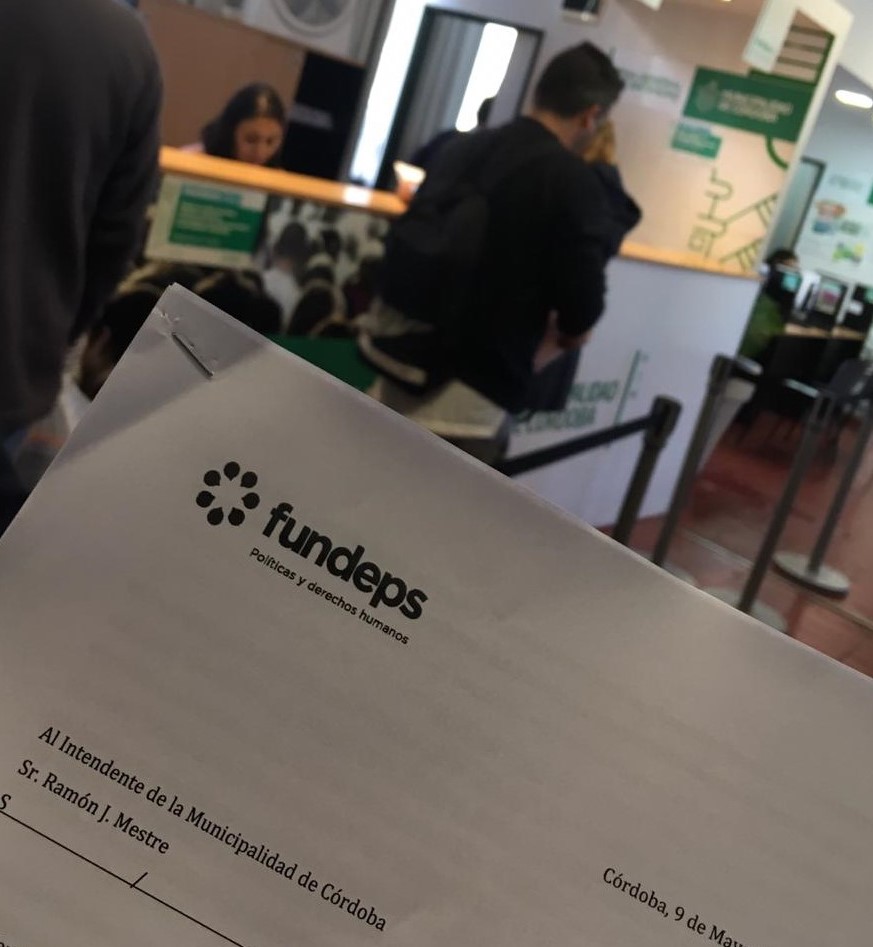During the month of December 2016, the Foundation for the Development of Sustainable Policies decided to carry out a survey process in the neighborhood of Chacras de la Merced, in order to obtain accurate information about the state of situation of the community there.
“Below, we offer a google translate version of the original article in Spanish. This translation may not be accurate but serves as a general presentation of the article. For more accurate information, please switch to the Spanish version of the website. In addition, feel free to directly contact in English the person mentioned at the bottom of this article with regards to this topic”
Since 2015, FUNDEPS has been working with the recently mentioned neighborhood of the City of Cordoba, in relation to the problems of the sewage treatment plant (WWTP). The proven malfunction of the plant, located in the area since 1984, has caused numerous problems in the nearby population, as well as in the ecosystem there.
The purpose of this survey process was to be able to discover the perception of the neighbors of the neighborhood with respect to the plant, as well as of other problems that they could identify as an emergency. The instrument used was intended to compile the perception of the community of Chacras de la Merced about the operation of the sewage treatment plant, the environmental situation of the area, the performance of the government authorities towards the neighborhood and its interest Engage in control activities.
In this sense, within the results obtained, below are presented those of greater relevance.
An 83% (44 families) does not feel calm with the environmental situation of the district Chacras de la Merced.
Five issues were mentioned and respondents were asked to prioritize among themselves, establishing from 1 to 5 the urgency with which they believed they should be addressed by government authorities. Of the total families surveyed, 34 (64%) of them gave the number 1 priority and urgency to the pollution caused by the sewage treatment plant.
The respondents were then asked whether or not they knew the work that EDAR does, and 58.8% said they did not know with certainty the work and operation of the WWTP. 50.9% said he was very badly informed about the issues that relate to the operation of the plant. Consistent with this, 79.2% of neighbors said they do not trust the information provided by the municipality of Cordoba on the operation of the plant.
Notwithstanding the lack of knowledge, 86% consider that the plant is not functioning properly; And opined in reference to the factor considered to cause malfunction. 37.2% of the respondents said that the plant does not work properly due to lack of municipal controls that verify the correct functioning. Likewise, 46.5% consider that the malfunction of the plant causes the immediate contamination of the river.
He wondered about the confidence that respondents had in certain institutions and organizations. Entrepreneurs, the provincial government, the municipal government, the police, the legislature, the judiciary, political parties, trade unions and the national government receive nothing from the neighbors of Chacras de la Merced. Private and public universities; Environmental organizations, social organizations, religious institutions, and the media are receptive to the trust of neighbors. The neighbors opined, undoubtedly with 77% (41 families), who do not trust EDAR.

It is important to note that 76.9% of the neighbors do not have / had information about the bidding process carried out by the province for the expansion of the sewage treatment plant. Likewise, with regard to the opinion about the expansion of the plant, it is surprising that despite the declared distrust of the authorities and the information they provide; 58.5% of the residents are confident that the work will improve the quality of life of the community.
88.7% of the respondents believe that they should (people from the neighborhood with civil society organizations) participate in monitoring spaces to the actions of the state in the area of environmental control. It was also consulted about the inclination towards participation in monitoring spaces of the actions of the municipality and the province in the process of construction of the new plant. 56.6% expressed that they would be willing to participate in these spaces if they arose.
The survey also aimed to know about the health history of the neighbors, consulting about symptoms and diseases they have had, their frequency, the diagnosis provided and the treatment indicated. In this regard, 69% said they had suffered from one of the listed symptoms.
The results of the survey process show that the community of Chacras de la Merced is in a serious situation of vulnerability due to the confluence of numerous factors that lead to the violation of their most basic rights. Álida Weht, director of the Las Omas grassroots organization whose objective is to improve the quality of life of the neighbors, has stated that: “the results constitute the visibility of a pollution situation that dates back several decades and a community Which has been immersed in an immediacy of problems for the same time.
In the context of the recent events related to the overturning of the Suquía River, both from company waste and from raw sewage, it is necessary to highlight the emergency in which the Chacras de la Merced neighborhood is located.
Full survey report
More information
Contact
Agustina Palencia – agustinapalencia@fundeps.org




